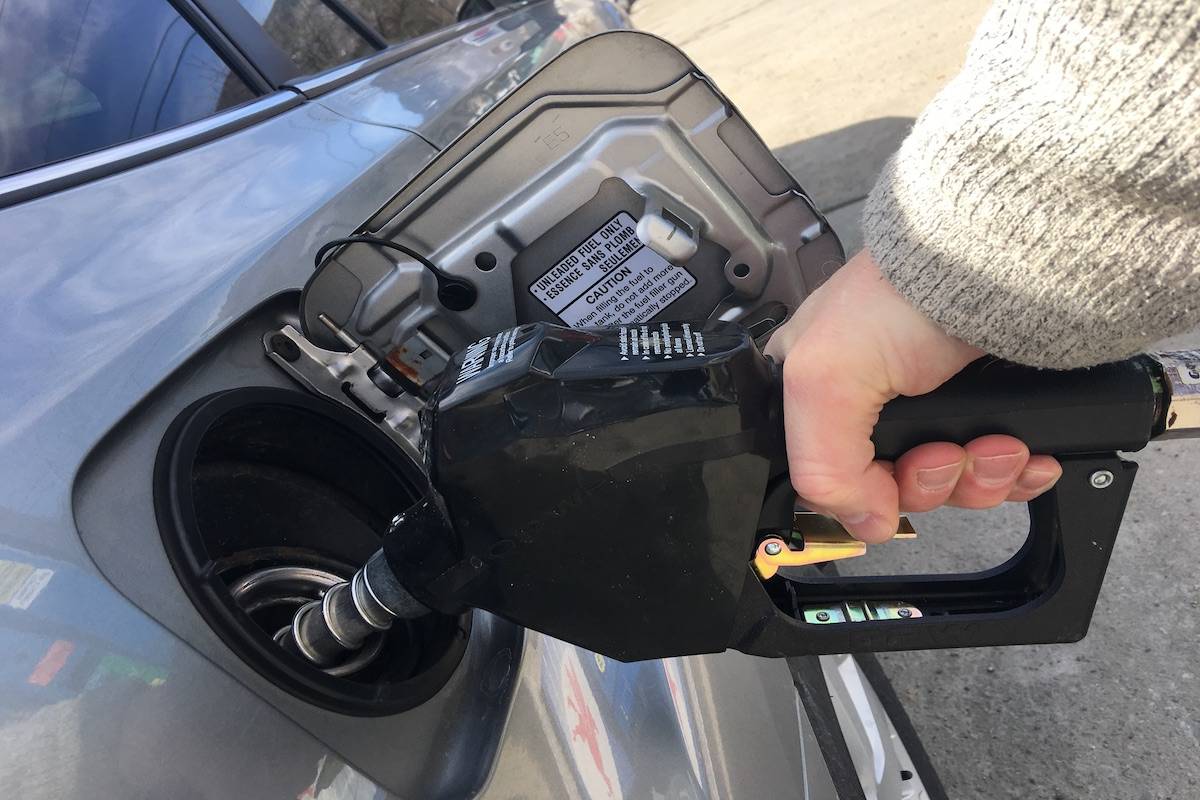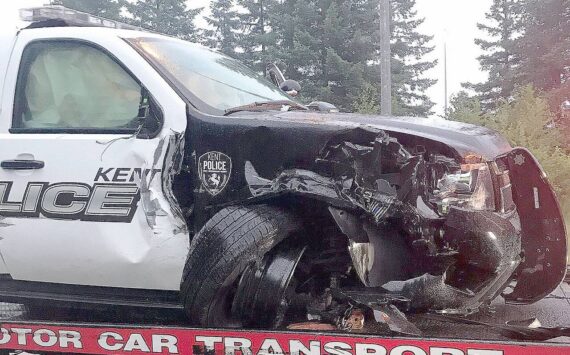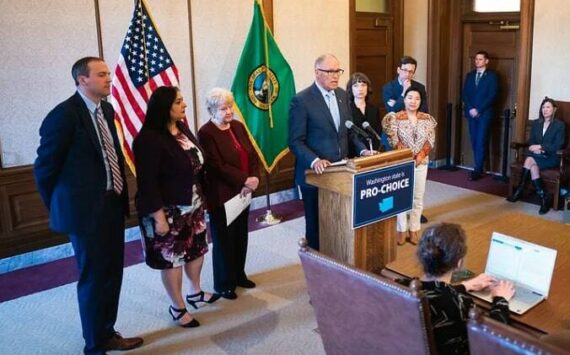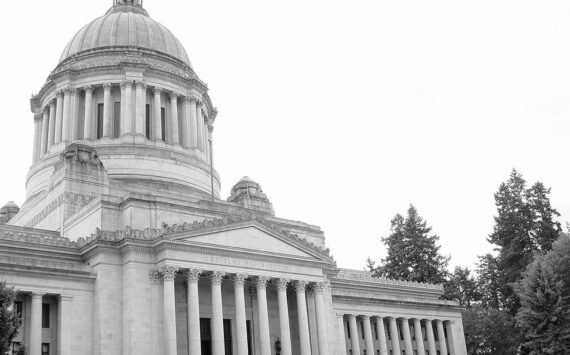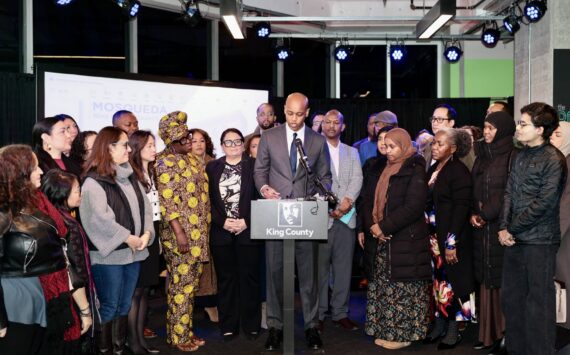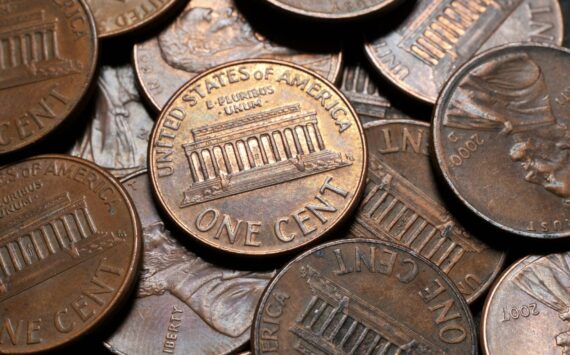Washington state lawmakers won’t be passing a massive transportation package this legislative session.
But they are closing in on approving a major carbon emission reduction program — though it could be contingent on boosting the gas tax to pay for future highway improvements.
A retooled cap-and-trade proposal emerged in the House early April 23 that ties the start of the long-sought program with enactment of a nickel increase in the gas tax.
This linkage is one of several changes contained in a sweeping amendment to Senate Bill 5126, also known as the Climate Commitment Act, which aims to cap emissions from the state’s largest polluters. As designed, it would create a market in which allowances for emissions are auctioned and revenue is used in a range of ways, including to reduce the number of vehicles on roads and to offset the negative impacts of pollution on communities. It is estimated the program will generate $4 billion in the next 10 years.
The proposed amendment, which the House was expected to consider sometime Friday, no longer contains a provision restricting use of some of the revenue if the state fails to approve a low carbon fuel standard by 2027. It adds details on who would be subject to the rules and how to deal with those who would be initially exempt.
Restoring the link between cap-and-trade and transportation revenue is the result of ongoing negotiations among House and Senate Democrats, and Gov. Jay Inslee, over how best to address climate change and the state’s pressing infrastructure needs.
“I think this is a positive step,” said Sen. Steve Hobbs, D-Lake Stevens, chairman of the Senate Transportation Committee. “It shows transportation is a critical part of dealing with climate change and a transportation package has to go hand-in-hand with carbon pricing.”
Hobbs is among a small group of Democrats unwilling to back the cap-and-trade bill without a firm pledge for action to come up with billions of dollars to maintain the existing statewide transportation system.
He’s spent the session pushing his 16-year, $17.8 billion undertaking known as Forward Washington, which counts on $5.2 billion of cap-and-invest revenue. Hence the interest in the linkage.
It contained money to rebuild the U.S. 2 trestle in Snohomish County, pay Washington’s share of a new I-5 bridge across the Columbia River, build new state ferries and bolster public transit.
But on Friday, Hobbs acknowledged the package is dead this session— a pronouncement made earlier this week by several legislative leaders.
Conversations will continue, he said, and should be fruitful if the linkage is retained. He’s still hoping for success “sometime this year” or next session.
Inslee, who requested the cap-and-trade bill, has said he wants a transportation package but opposes linking it with the emission reduction program in the same legislation.
“We are reviewing the developments,” said Tara Lee, Inslee’s executive director for communications. “As with everything in the last few days prior to the end of the legislative session, we need to wait and see what the final outcome will be.”
Environmentalists think this could be the path to success on cap-and-trade after years of setbacks in the Legislature and on the ballot.
“We are confident that the changes to the Climate Commitment Act will ensure its likely implementation in the urgent time frame that is needed,” said Clifford Traisman, lobbyist for the Washington Conservation Voters and Washington Environmental Council.
“We will continuously work for passage of a transportation package, as it is urgently needed to fund transit, fund ways to reduce carbon emissions, and to serve people,” he said. “It is with our hope that the next phase of the transportation revenue debate will more robustly involve the public in order to build the needed momentum for a package”
Meanwhile Friday, a new two-year, $11.8 billion state transportation budget won support from a bipartisan panel. The spending plan approved by the conference committee of House and Senate members now awaits final action in each chamber.
It counts on $1 billion of federal COVID funds to cope with reduced collection of gas taxes, tolls and ferry fares during the pandemic and to comply with a court order to replace culverts that hamper fish migration.
It also takes advantage of the state Supreme Court ruling in October to invalidate a $30 car license fee initiative in October. Roughly $300 million in payments set aside during litigation are used to make ends meet.
Without those unexpected dollars, the state would have been forced to sharply reduce aid for transit and delay numerous highway projects around the state, said lawmakers involved in negotiating the final spending blueprint.
“I think we lucked out this session,” said Rep. Jake Fey, D-Tacoma, chairman of the House Transportation Committee and one of the budget conferees. “We’ve got challenges ahead. I think they’re obvious. We need additional resources.”
Hobbs, another conferee, echoed the theme in his comments.
“This budget is held together with bailing wire, Bondo and duct tape,” he said. “We have to do something for transportation.”
Of the federal funds, $600 million is penciled in to backfill revenue losses due to the pandemic in accounts for transit programs, Washington State Ferries operations, and Connecting Washington projects. Also, some funds go to offset a dip in receipts on the Highway 520 and Tacoma Narrows bridges, and the I-405 toll lanes.
The proposed budget steers roughly $726 million toward continued removal of culverts that block salmon from miles of habitat. A federal court set a 2030 deadline to complete the work, which involves hundreds of culverts and carries an estimated $3 billion price tag. The amount matches what Gov. Jay Inslee requested in the budget he proposed in December.
Of the total, $400 million is from federal aid. As a precaution, an equal sum of state dollars is set aside for culverts if it turns out those federal dollars cannot be spent on culverts, as hoped.
The legislative session is scheduled to end Sunday.
